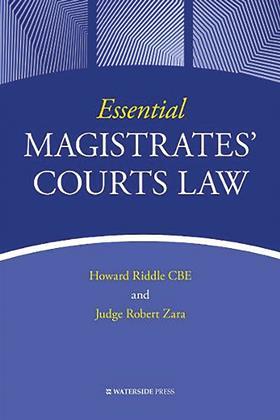Criminal Records, Privacy and the Criminal Justice System
Edward Jones, Jessica Jones
£75, Bloomsbury
★★★★★
This is the book I had hoped someone would write. For criminal law firms, there is a constant stream of clients raising issues in respect of their criminal investigations, cases and outcomes.
Some of those issues go along the lines of: ‘I admitted an offence so that I would not have to go to court but now I cannot get a job. Can the caution (or community resolution) be removed?’; ‘I committed an offence but it means that it never becomes “protected” under the regulations. Can I substitute a lesser offence?’; ‘My conviction was 20 years ago but it is still being disclosed: they say that because it was charged as two matters it can never be “protected”. Is this right?’; ‘I have to produce an enhanced certificate and they want to refer to my acquittal (or the case where no further action was taken). If it is disclosed I won’t get the job. Can I stop them doing so?’; ‘I was acquitted but the case is still all over Google. Can the reference be removed?’
Criminal Records, Privacy and the Criminal Justice System is written by a practising solicitor and a practising barrister who deal regularly with these issues. It is divided into 14 easy-to-read chapters, covering everything from the sources of law, the deletion of personal material, the Disclosure and Barring Service, judicial review and the right to erasure.
The appendices include the relevant legislation, pre-action protocols, statutory guidance and forms seeking the deletion of information.
Rehabilitation is hugely affected by the storage and disclosure of electronic data. This is an essential reference work to assist those advising clients who wish to limit the unnecessary disclosure of damaging information about their past.
Anthony Edwards is a solicitor at TV Edwards
Essential Magistrates’ Courts Law
Howard Riddle CBE, Judge Robert Zara

£19.95, Waterside Press
With the framework of summary justice transformed in the past decade, this book is a timely update on evidence, procedure, guidelines, sentencing, training, and the fair but efficient expedition of cases. Whether you are a newcomer to magistrates’ court law, a legal adviser or criminal practitioner, this book offers quick and targeted points of reference on key aspects of law. What’s more, the authors distil their vast expertise into an accessible format.
































No comments yet